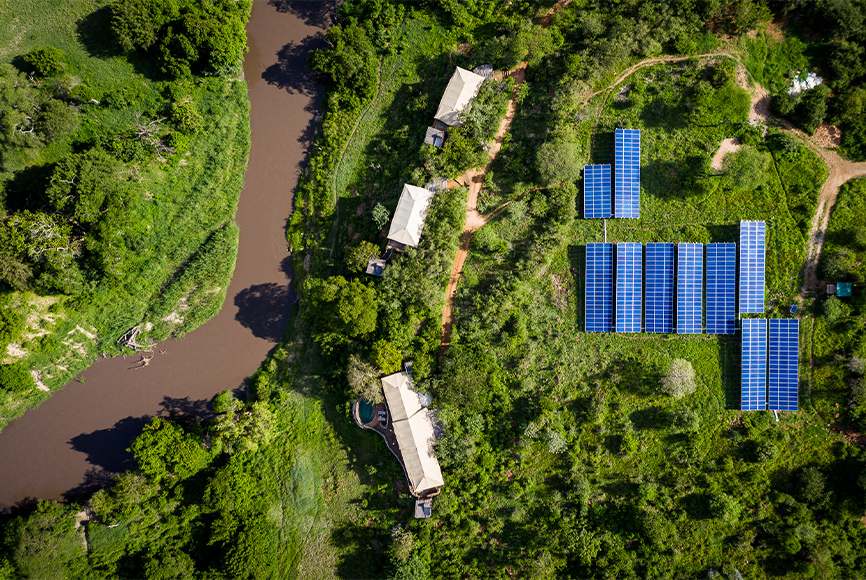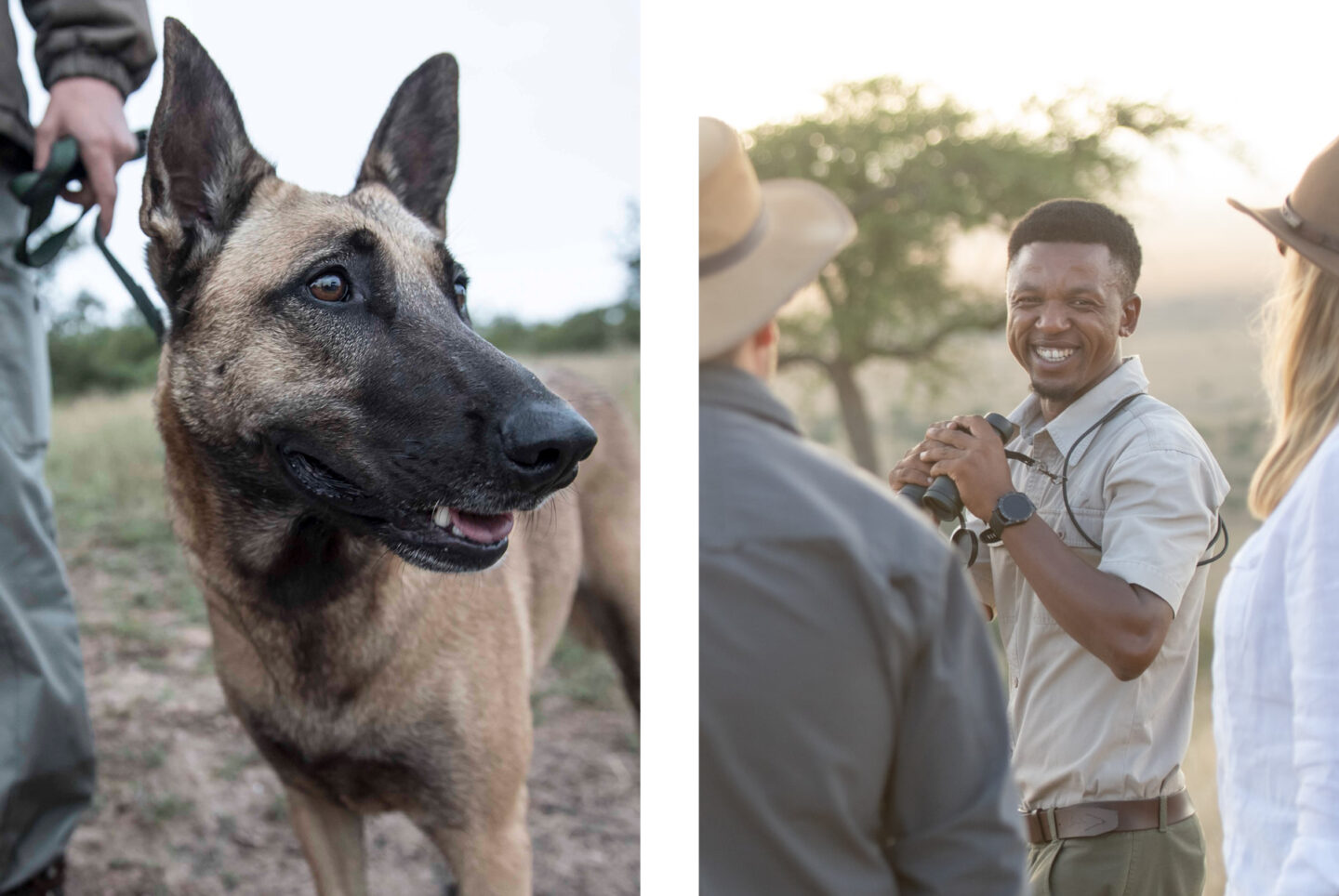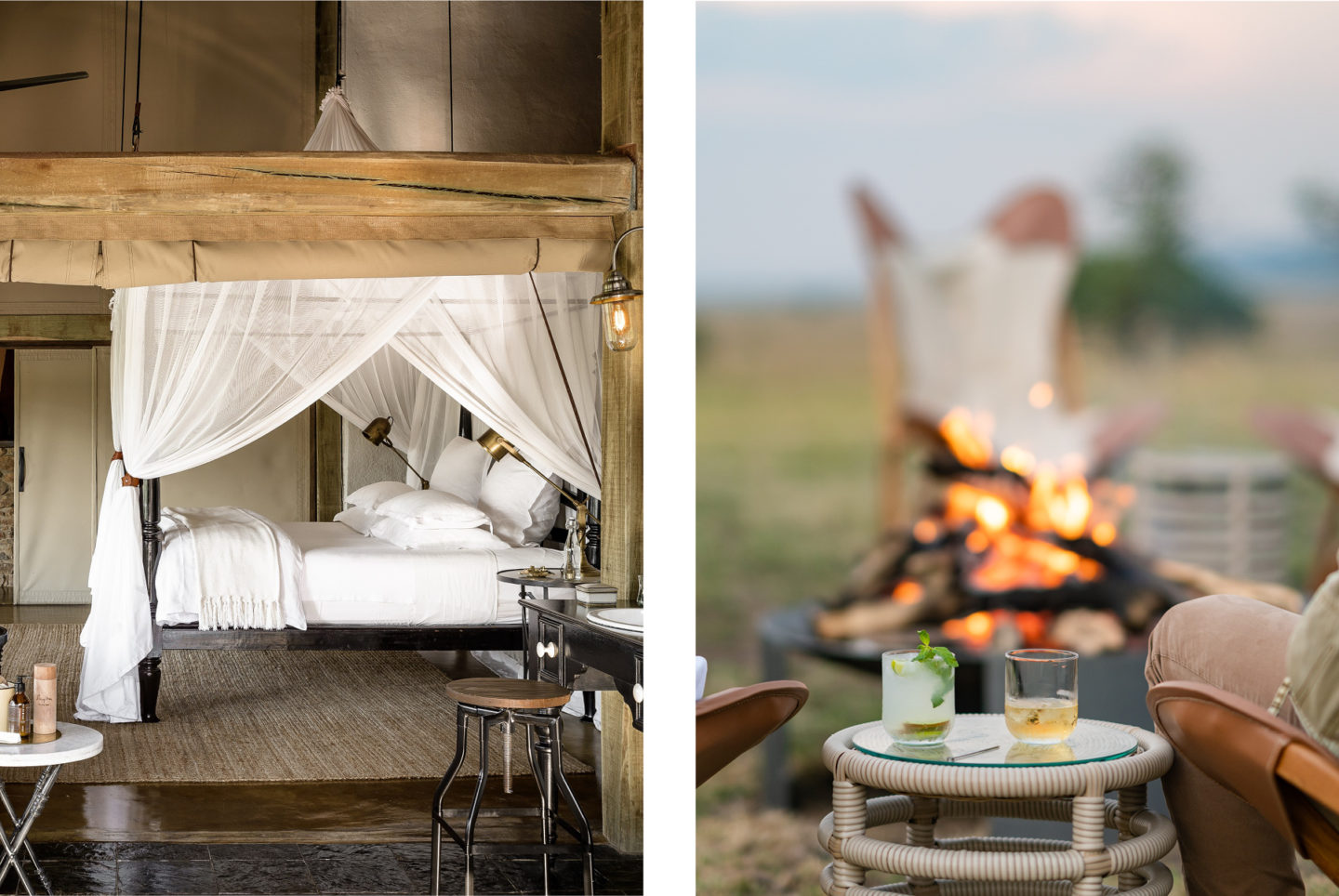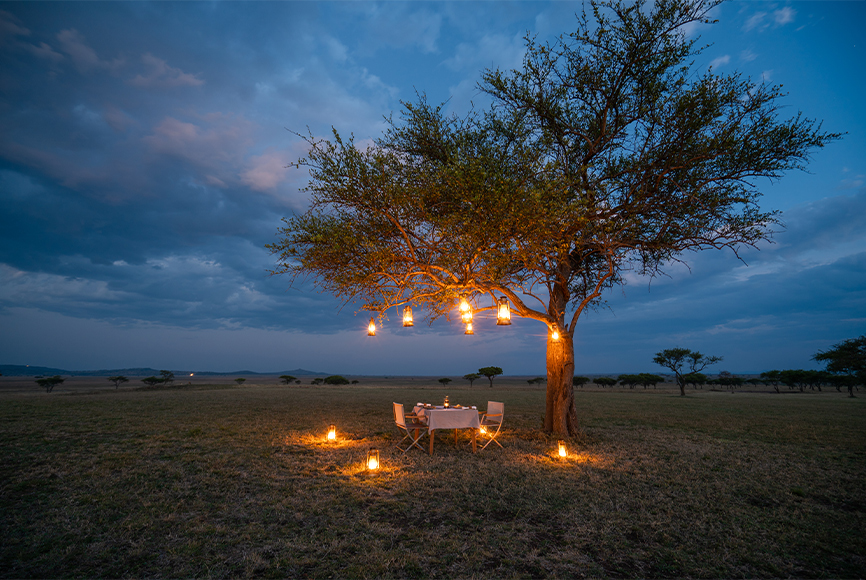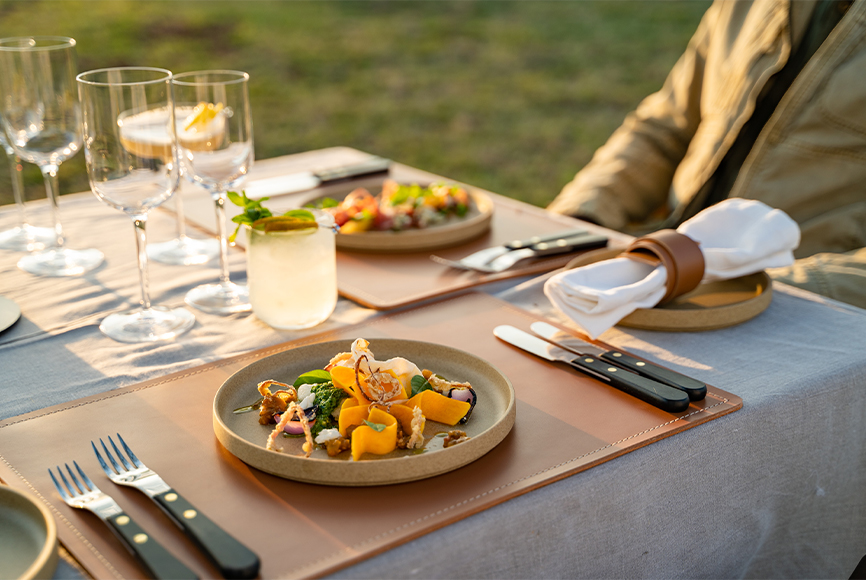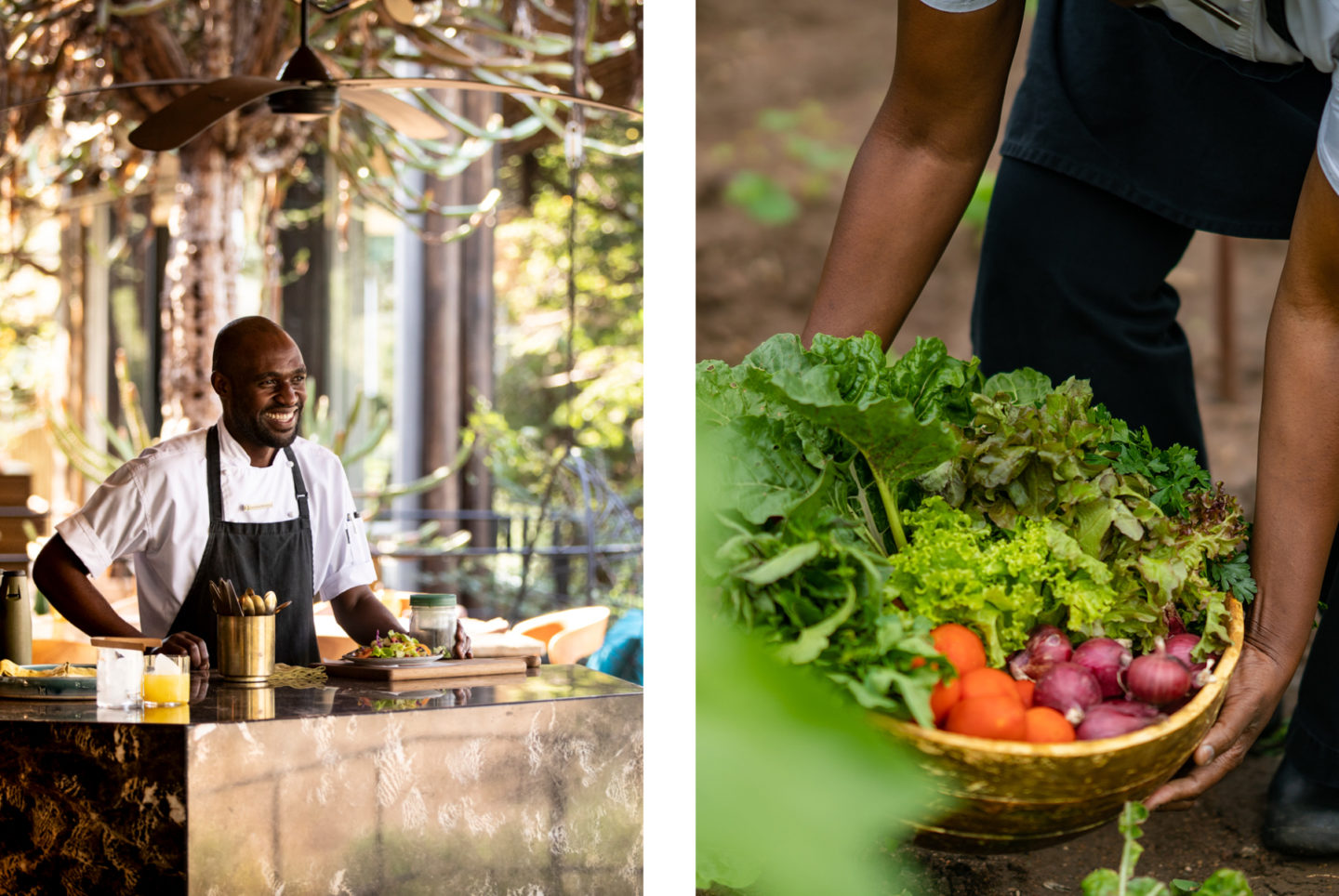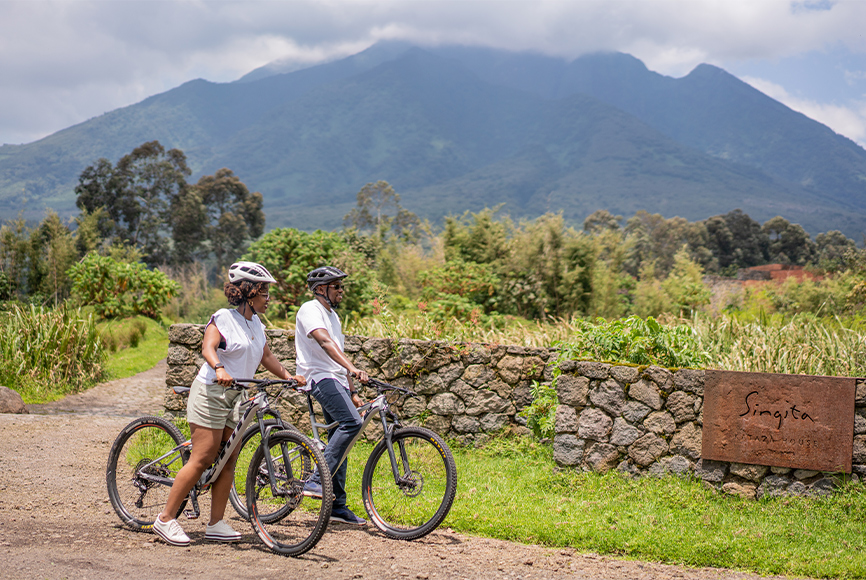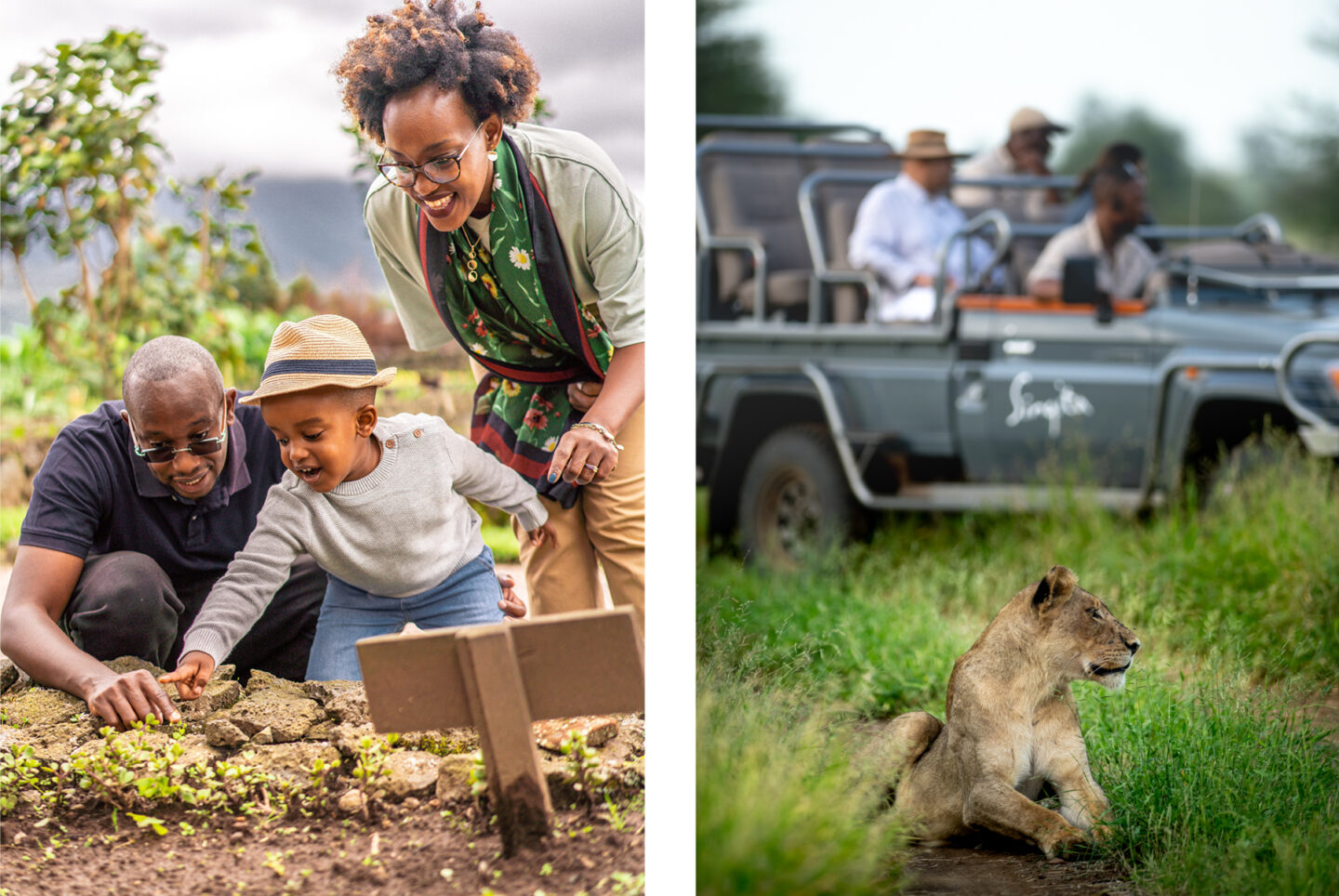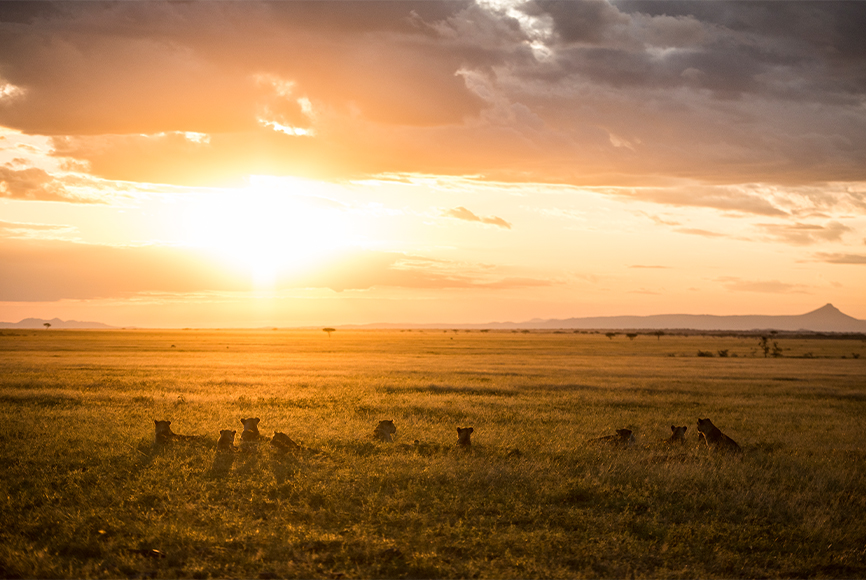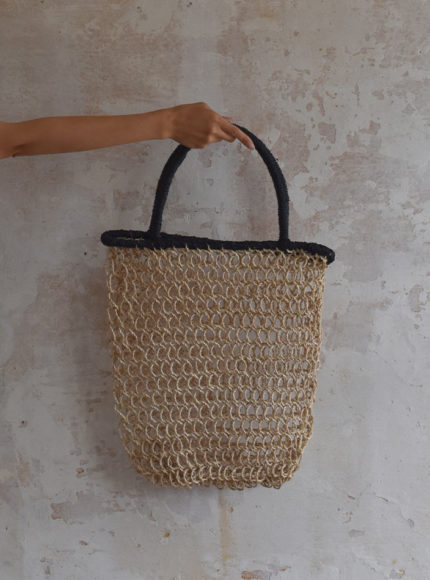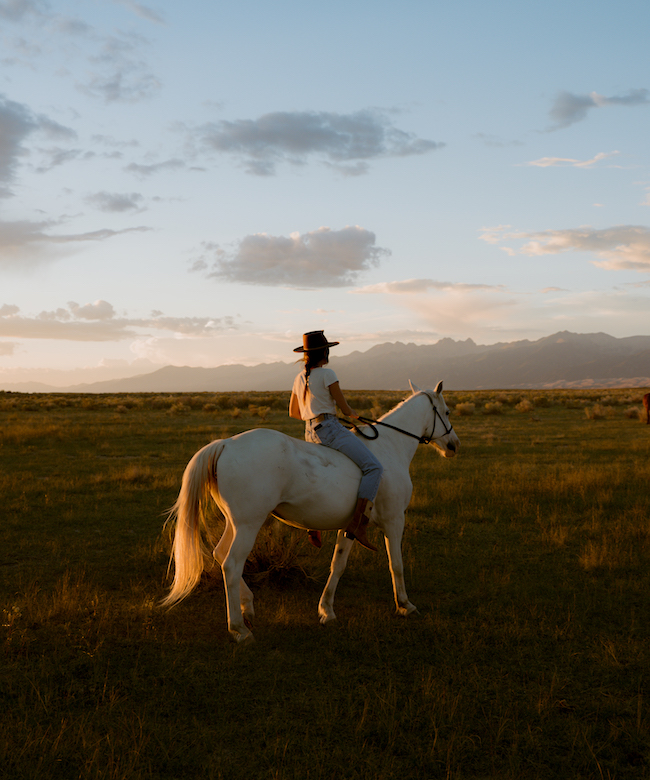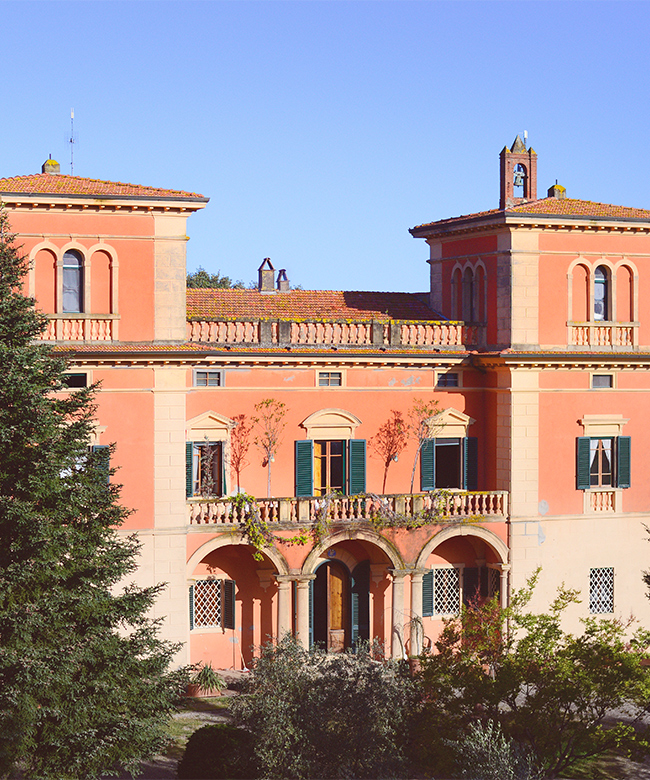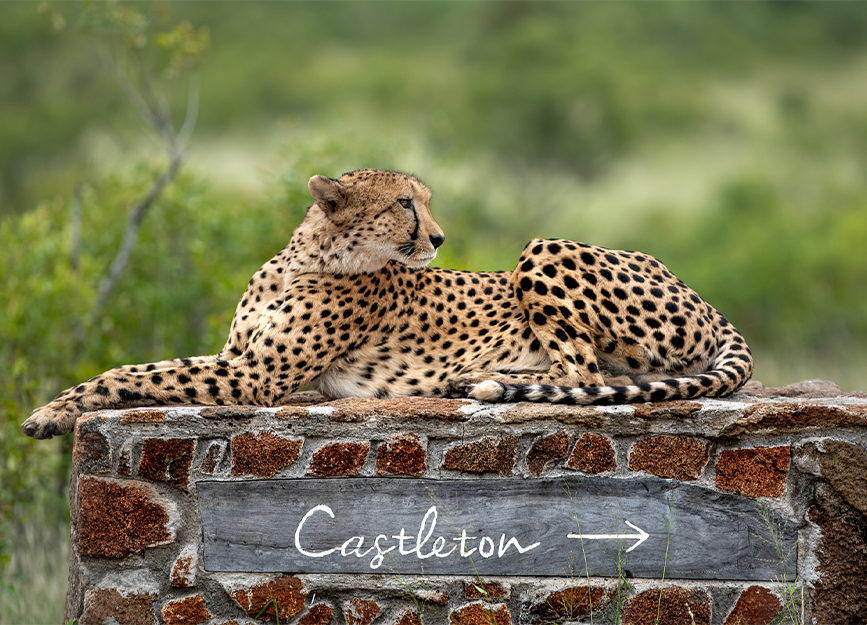

@singita_
@singita_
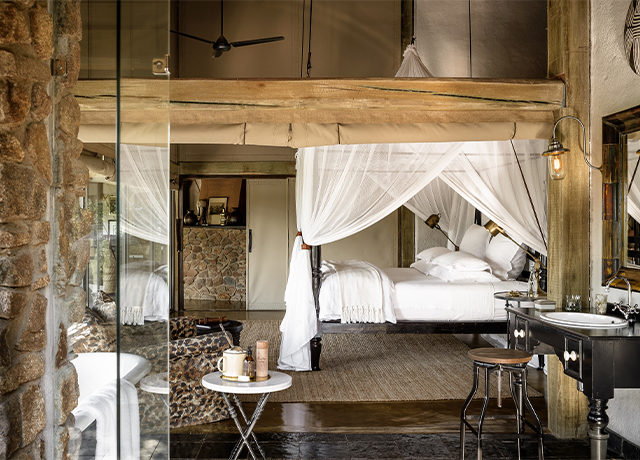

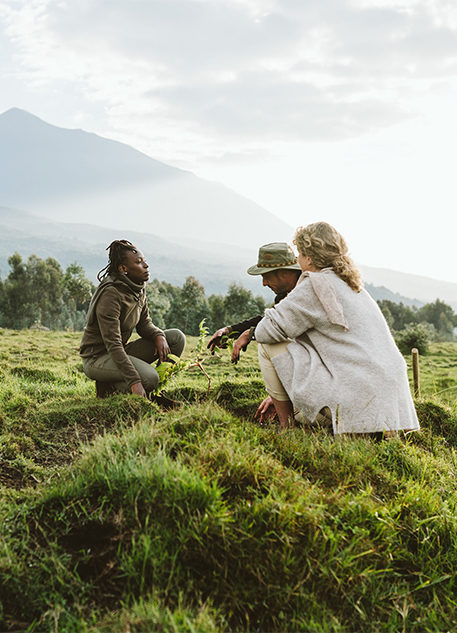

@singita_
Travel
Our Eco Hotel Series: Conservation at Singita lodges, Africa
We are so thrilled to bring you a destination that is truly giving back to local communities, wildlife and biodiversity in the form of Singita’s lodges in Africa! Since 1993 they have been pioneers in environmentally conscious tourism and hospitality.
“As an ecotourism and conservation brand, Singita is unwavering in its commitment to protect Africa’s wilderness and since opening its first property – Singita Ebony Lodge – in 1993, sustainability, environmentally conscious hospitality and the empowerment of local communities have been cornerstones of this enduring 100-year purpose.”
First of all, can you introduce Singita and your mission with it?
As an ecotourism and conservation brand, Singita is unwavering in its commitment to protect Africa’s wilderness and since opening its first property – Singita Ebony Lodge – in 1993, sustainability, environmentally conscious hospitality and the empowerment of local communities have been cornerstones of this enduring 100-year purpose.
Our 100-year purpose is to protect and preserve large parts of African wilderness for future generations.
It is our life’s work to share these awe-inspiring parts of the continent with guests who appreciate pristine wide-open spaces, while preserving the natural environment and challenging accepted norms in luxury travel to raise the bar on sustainability. Singita’s concessions, reserves, 15 lodges are in some of Africa’s most pristine wilderness areas, and our commitment to safeguard the precious wildlife and communities of these areas is entrenched in three core pillars: Biodiversity, Sustainability and Community.
Alongside our partner conservation Funds & Trusts, we are the guardians of large areas of pristine wilderness and responsible for thriving community partnership projects that make a tangible difference in the lives of people living and working in and around our lodges. Looking towards the future, these initiatives remain at the heart of Singita’s story.
What’s the history of the land – has it always been used for conservation or was this something that has evolved with time?
Singita’s story dates back almost a century ago, and started on a piece of land in a remote corner of the Sabi Sand in South Africa, which was purchased by Founder, Luke Bailes’ grandfather. This 30,000-acre traversing land, which would later become the Sabi Sand Reserve, was transformed over time from a former hunting concession into an exclusive conservation reserve where all species are protected.
Singita Ebony was the first Singita lodge to open, in 1993, and has now grown to a portfolio of 15 lodges and camps in four African countries. It was the dream of our Founder, before the Singita brand was born.
You say the Singita is an ecotourism brand – what does that mean to you?
Conservation is our passion and purpose.
Over the 30 years, our far-reaching commitment to safeguarding the continent’s wildlife populations and wilderness areas – as well as creating economic independence within communities living alongside them – has seen us implement strategic partnerships with non-profit Funds & Trusts in each of the regions in which we operate.
Through our support of our partner funds and trusts, we attract purpose-driven guests who share Singita’s vision of a sustainable future for Africa’s precious species as well as vulnerable communities through long-term conservation projects that make a meaningful impact.
Singita is a story of a sustainable farm-to-table food journey that celebrates fresh, seasonal produce and traditional regional flavors; the story of wellness that extends beyond conventional treatments, emphasising true wellbeing & balancing body and soul; and reconnecting with nature in meaningful ways, beyond sustainability – to regeneration.
Looking to the future, we are focused on our 100-year purpose, and it continues to inform all our decisions on the ground. The breathtaking landscapes of our reserves and concessions form the perfect backdrop for the stillness our guests seek and we are dedicated to creating exclusive sanctuaries that inspire a soul-restoring sense of calm.
We will only develop new properties that are better than, or as good as, the ones we already have and this disciplined approach ensures that we continue delivering Singita’s unparalleled guest experience, remain steadfast in our commitment to our purpose, and keep benefiting the land and communities in which we operate.
We work tirelessly to achieve our goals. It includes sustainable operations across all our lodges and urban offices, and we continuously reduce our ecological footprint, improve conditions for our people and support initiatives to uplift communities neighbouring the lodges.
Read more: Community, Biodiversity, Sustainability
How do you focus on maintaining biodiversity and protecting wildlife whilst still welcoming outside guests to the land?
30 Years ago, we created a conservation model which is still the foundation of our work.
At Singita, conservation encapsulates an interdependent relationship between three critical components: Biodiversity, Community & Sustainability. They are all integral to our model, as we believe Africa needs large and meaningful projects to move the needle.
Focusing on biodiversity conservation, wildlife management, meaningful community partnerships, a commitment to sustainability and treading lightly on the Earth, our strategic partnerships with non-profit Funds & Trusts help to protect unique ecosystems, recover critically endangered species, ensure no further extinction, benefit neighbouring communities under our care and contribute positively to the reduction of GHG emissions through our climate commitments.
The aim is to secure the continued ecological integrity, wildlife management and ecosystem restoration of some of Africa’s most diverse wilderness areas– from the savannas of the Serengeti to the rainforests of Rwanda’s Volcanoes National Park.
Our conservation partners strive to restore, enhance and protect the biodiversity of the ecosystems.
Our conservation partners are:
- South Africa – Singita Lowveld Trust
- Zimbabwe – The Malilangwe Trust
- Tanzania – The Grumeti Fund
For example as custodians of the Malilangwe Wildlife Reserve in Zimbabwe, the Malilangwe Trust manages the conservation of this pristine wilderness – which comprises 38 different habitats and ecological zones in 130,000 acres of protected land. After successfully introducing black and white rhinos to the reserve in 1998, it’s now home to a globally significant population of both and the programme has been so successful that it is a source for restocking rhinos in other reserves on the continent.
Singita’s guest activities are always done with respect to the animals and landscapes; and game drives and nature walks try to leave as little impact as possible.
Examples of projects to protect and preserve biodiversity in various regions.
- (SA) – Rewilding/ rehab of orphaned rhino
- (Tanzania) Reintroduction of black rhino & anti-poaching
- (Zim) Rhino Conservation
How do you think creating a connection to the natural world through the Singita stays can lead to a commitment to sustainability for your guests?
A shared vision for the future – Over the years, we’ve been fortunate to form meaningful partnerships with conservation organisations in each region. It’s through this spirit of collaboration that the many worthy initiatives that make a lasting impact on the ground are possible.
Guests can also experience this valuable work through opportunities to participate in various projects, and see first-hand what’s being done in communities and on our concessions to work towards sustainable futures – for both people and wildlife.
We also inspire guests to lead more sustainable lifestyles and gently introduce wellness, Wholeness, meditation; less animal protein; healthier drinks, yoga, sound therapy and grounding treatments as well as removing all single use plastic in the lodges so that guests (and children) can learn and take back some practices to their lives. Once guests visit and fall in love with the African landscapes and iconic wildlife and inspiring projects, they usually want to become involved and share the message with others. Social media has been an important driver of this.
In 2021, Singita opened two art galleries (in Sabi Sand and Kruger Park). Only African art is shown and sold, and proceeds benefits Singita Lowveld Trust for community enterprise development projects.
How does Singita approach the idea of only creating a new place when they can make something better than they found it initially?
As mentioned, the Singita philosophy on growth is : we will only develop new properties that are better than, or as good as, the ones we already have and this disciplined approach ensures that we continue delivering Singita’s unparalleled guest experience, remain steadfast in our commitment to our purpose, and keep benefiting the land and communities in which we operate.
“Singita is a story of a sustainable farm-to-table food journey that celebrates fresh, seasonal produce and traditional regional flavors; the story of wellness that extends beyond conventional treatments, emphasising true wellbeing & balancing body and soul; and reconnecting with nature in meaningful ways, beyond sustainability – to regeneration. It’s the story of discovery, of shifting one’s perspective and of touching the Earth lightly – and stepping into a more sustainable future.”
How have you empowered and engaged with local communities whilst running Singita?
Apart from restoring, securing and safeguarding unique wilderness areas and wildlife, Singita strives to build strong community partnerships with our many neighbouring villages, and to assist them to thrive economically and socially.
We work with three incredible conservation NGOs in South Africa, Tanzania and Zimbabwe and run a few projects in Rwanda too.
Dedicated initiatives across all regions include a strong focus on education and range from Early Childhood Development to onsite environmental education for school groups, academic bursaries and scholarships, digital learning opportunities for remote villages, English classes and adult bridging courses – as well as gender empowerment for woman and girls. We also support small and medium enterprise development and livelihoods such as smallholder agricultural cooperatives that supply to our lodges, honey production, and local arts and crafts.
One of our most successful community partnerships in three regions is our Singita Community Culinary Schools (we have 3). About 10 students from the local communities are selected and complete a world-recognized chef’s certification and employment prospects.
This unique program that serves to fulfill a real need in the community, as well as for the South African hospitality industry as a whole. They graduate as commis chefs of the highest calibre. There are three Singita Community Culinary Schools (SCCSs) – located in South Africa, Tanzania and Rwanda respectively.
Most of our staff come from local communities in each region.
Please see here for all the projects Singita supports with marketing, fundraising and connecting guests to the projects.
How do you make sure that the design of your various lodges is reflective of your sustainable ethos?
At Singita, a sustainable world is one in which people enjoy happy, healthy lives within their fair share of the earth’s resources, leaving space for wildlife and wilderness. We recognise that sustainable operations across all our lodges and support offices play a major role in achieving our purpose.
We consistently strive to be more sustainable by doing all we can to reduce our ecological footprint and to improve the lives of our people, and those in neighbouring communities.
New builds, such as Singita Kwitonda Lodge & Kataza House in Rwanda and Singita Sabora Tented Camp in Tanzania, are built from a sustainability mindset, in terms of local procurement; local workforce; incorporating local art and décor; less air conditioning; water management systems; waste reduction; solar power etc.
All 15 Singita lodges are guides by 10 principles of One Planet Living framework.
The success of the tourism operations is directly linked to the success of the conservation and community development work that Singita undertakes or supports. By becoming a One Planet Community Singita is pledging to ‘operate within global environmental limits’ and committing to this principle as the foundation of how the company conducts its business.
Singita has demonstrated this in several ways:
- Outreach to influence conservation in the region and tourism globally
- Continuing to partner with Panthera to support leopard conservation
- Founding member of the Lionscape Coalition
- Participation in Vulture Safe Zones Alliance (with Endangered Wildlife Trust) and Birdlife’s critical bird monitoring in the Greater Kruger system.
- Training of all guides as first responders in poison interventions in the Greater Kruger (with Endangered Wildlife Trust)
Are there any other ways you have looked at sustainability for the lodge that you feel are unique?
Locally sourced food / Carbon offset levy introduced on all guest nights / Culture and community / Sustainable materials / Zero carbon (solar power 50% of all lodges) / zero waste / water conservation/ Equity and local community
We introduced a carbon offset levy in 2021 for all guest nights, donated to verified projects
Read more about our philosophy to food and reducing food waste here & here
Solar power to 50% of our lodges
What are your hopes for the future of Singita and its wider impact?
There were some opportunities in the wake of the pandemic to evolve ecotourism into an even more effective model for conservation.
Singita Founder, Luke Bailes, says the following:
“Companies need to be fully transparent about where conservation money is going – and measure how effectively it is being spent. Donors want to see the vast majority of their money going into projects, instead of supporting administration costs.”
“Cooperation is another key issue and one of the things that concern me most is the lack of collaboration between NGOs and conservation bodies to solve the massive problems that confront us. The issues are too big to do individually, so I would love to see increased efforts to work together.”
“There is also an opportunity for NGOs and conservation brands to work more closely with the media to tell real stories and create awareness, while providing easy access to ways to get involved. We have seen through our guests how well this can work, how often they want to get involved to make a difference and there are some very compelling initiatives to do this.”
Finally, can you give us your top three tips for sustainable, and even better regenerative, travel?
1. Luke Bailes: “Travel to Africa!
The more travellers come to Africa, the more funds will flow into its economies. The benefits will then filter into the continent’s communities, where one person normally has 10 dependents. When there is an increase in the demand for ecotourism properties, more employment is created and lodges do better – leading to more opportunities for new entrants to the business.
It’s worth remembering that you don’t just support a lodge – there is a far-reaching economy that is created by ancillary services like transfers, private charters, laundry, butcheries, and more. Travellers should also do their homework before they come. They should choose responsible, conservation-driven brands and make sure that their travel dollars support sustainable projects.”
2. Be a Responsible Traveller
- Guests should choose a responsible ecotourism operator to travel with. Select a reputable, proven conservation brand with a stellar track record, where they can see incredible projects and positive results.
- Support community or conservation projects that resonate with them. For example, at Singita Kruger National Park, you could visit the Singita Community Culinary School and take a cooking lesson and buy our cookbook – funds from both support the students.
- Alternatively, guests can support any of Singita’s conservation or community projects via our partner funds and trusts. Guests can leave a safari knowing they have contributed to early childhood development, anti-poaching canine units, community projects, leopard research, or many other life-changing projects.
3. Reduce your own footprint –
- Rampant biodiversity loss driven by mankind’s unsustainable consumption patterns has led to the planet losing nature faster than it can be restored. This decade is set to be defined by restoration and regeneration and our efforts are fully aligned with global conservation goals.
- The latest findings report that we have lost 70% of biodiversity – habitats and species in the last 50 years. Human activity is driving land degradation (through deforestation, city growth and farming), and resource use for our food, water and energy needs. This is driving accelerated global warming and increasing climate instability.
Also, reduce or refuse single use plastic; recycle; compost food; change to solar power; reduce your carbon footprint; shop responsibly; buy local; eat less animal protein; travel responsibly i.e. support local community or conservation projects such as Singita’s canine anti-poaching team. A visit costs R5,000 or USD500 per person which supports the scouts and dogs.
Words by Inge Kotze, Head of Conservation and Luke Bailes, Founder of Singita
Follow Singita on Instagram @singita_



















